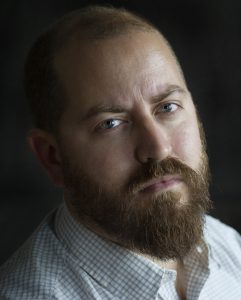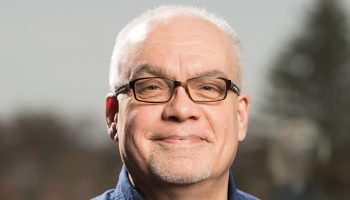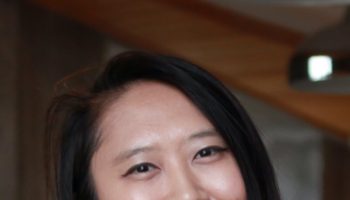Laura Ingalls Wilder’s Little House on the Prairie, Cheryl Strayed’s Wild and Lena Dunham’s “Girls” have something in common.
Chautauqua Writers’ Center Week Six prose writer-in-residence Jess Row will deliver his Brown Bag at 12:15 p.m. Friday, Aug. 3, on the front porch of the Literary Arts Center at Alumni Hall. He will discuss the theme that ties those three American writers and works together: “What It Means for a Space to Be ‘Empty’: Writing Against Gentrification, Displacement, Erasure.”

Row’s writing has appeared in various publications, including The New Yorker, The New York Times Book Review and The Atlantic. He teaches at the College of New Jersey and has published short story collections The Train to Lo Wu and Nobody Ever Gets Lost and a novel, Your Face in Mine.
The subject of his Brown Bag, Row said, comes from his upcoming book, White Flights.
“That is, among other things, a history of the way that American fiction over the last 40 or 50 years became so racially stratified,” Jess said, “where white American fiction writers took up a practice of writing almost exclusively about white people.”
For many white writers, this practice meant writing about spaces in which people of color “never appear,” according to Row.
In his lecture, Row will explore and question what it means to talk about “empty space” in America.
“Part of the imagination and American iconography is about big landscapes, deserts, mountains, Monument Valley,” Row said. “It’s about … a solitary figure finding herself or himself in an empty landscape.”
This theme permeates American literature. Row cited Cheryl Strayed’s Wild as just one example of a work that embodies the “idea of the pioneer, the adventurer, the person going it alone in an empty, hostile, vast space.”
But what does thinking about those spaces as empty mean?
“If you’re thinking about landscapes of the West, for example, those landscapes might visually appear to be empty, but of course they’re not empty historically,” Row said. “They were inhabited by indigenous groups who were there for thousands of years, and if they appeared ‘empty’ to Western pioneers or settlers, it’s because they were emptied.”
This process of “emptying” included means such as violence, ethnic cleansing and displacement, Row said.
In addition to this idea of the wilderness as empty space, Row will also address gentrification and its relationship to assertions of emptiness.
“You can also bring that same set of spatial metaphors … to think about the way gentrification works, often as people with power and privilege, who are often white people, coming into urban spaces that they see as empty, deserted, blighted, abandoned, … and then setting up something new,” Row said.
Gentrifiers are often called pioneers, which Row said makes for an “easy” analogy.
Row will provide examples in the form of authors during his talk, and he said he may throw in Dunham’s TV show “Girls” for good measure.
“I’m hoping (listeners) come away with the ability to question (how) these metaphors get used and reused,” Row said.
The blank space or “tabula rasa” associated with new condominiums in the suburbs is one example, according to Row, of false conceptions of empty space.
“It’s not empty of the natural world,” Row said. “It’s also not empty of the history of humans.”
But it’s often treated as something brand new.
“Americans love new things,” he said. “They love things that are new and blank and waiting to be stamped with some particular identity, but the truth is, things that appear blank and empty and new generally are not.”



